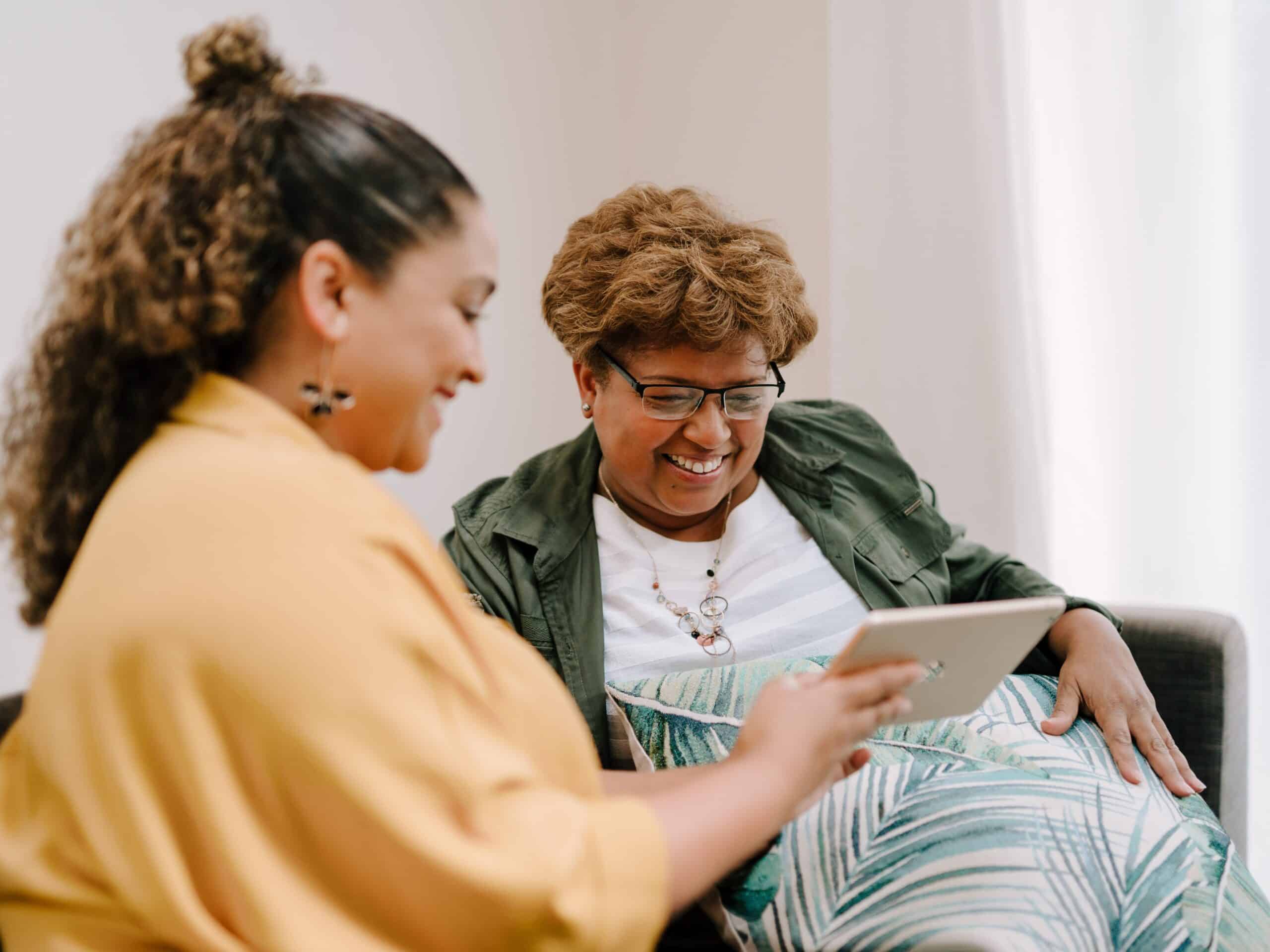What to know about Dementia Memory Boxes

What are Dementia Memory Boxes?
Memory Boxes for people living with dementia are a collection of items that can stimulate memory and help them feel more comfortable in their surroundings. Valuable in reminiscence work, the University of Derby tells us that “Exploring and talking about things from the past can help to trigger short-term memories by bringing to the fore, long term memories.” This can help someone living with dementia to feel less confused and disoriented by their living situation and the people around them. This can be especially valuable if someone has had to leave familiar surroundings and move somewhere less familiar, such as moving out of their home and into residential accommodation.
Keeping people living in the home they love is just one of the ways that Helping Hands can make a difference to the lives of people living with dementia. By not having to leave the place that means the most to them, someone living with dementia will remain in comforting surroundings, which can help to reduce confusion in some cases. In addition, our exceptional visiting and live-in care is fully regulated by the Care Quality Commission and the Care Inspectorate Wales, which is a comfort and reassurance for family members too.

What to put into Dementia Memory Boxes?
There is no special formula to what you should use in reminiscence work or memory boxes because every person is different, and it will be very personal to them and their memories, however, there are certain items that can be added that may stimulate memories and trigger emotions. Focussing on the five senses of sight, touch, taste, hearing and smell will be a good way to approach memory box work and may deliver the best chance of success.
Photographs/Newspaper clippings
Emotions can be triggered by photographs or newspaper cuttings of beloved people, happy occasions, and notable events. This could include the person’s wedding day, school photograph, or something important in history that they feel a connection too. Only positive cues should be used though as negative emotions could also be triggered if the memory was not a happy one.
Music
Tape, CD, or vinyl; music has always been great at prompting memories. By playing a favourite piece of music it can have a ‘time machine’ effect and help us to feel as we did when we first heard it. We can practically be transported back to that moment in time and what we were doing in our lives then.
Souvenirs/mementoes
Beloved hobbies can trigger positive emotions whether that’s travel, sport, creative crafts, or something else. Significant life events could also be used, such as a first pay slip, or milestone birthday card. Different textures can be useful to maximise emotional stimulation too, such as travel tickets, knitting wool, paint brushes, or whatever is relevant to that person’s interests.
Scented products
Aroma is one of the strongest aides to memory, and we only have to smell someone wearing a loved one’s favourite scent to make us think of them. Favourite smells could include soap, body lotion, perfume, or flower petals for instance, so if the person was always bathed in carbolic soap when they were young then this could be a key item to include in the memory box.
Favourite snacks
Taste is also a key sense and by eating something we used to enjoy it can take us to an earlier happy memory. Snacks and sweet treats can make us feel better on the lowest of days, so if someone is really struggling with memory retrieval such happy triggers could help. This could take us back to teatime at a grandparent’s house, their favourite sweets in a paper bag on pocket money day, or ice creams by the seaside on a summer’s afternoon.
Familiar textures
Feeling different textures can be a strong memory and will also stimulate memory and emotion. For instance, a blanket that the person’s baby was wrapped in when they came home from hospital, a key fob that they used every day, or the handle from a frying pan they used for decades could all be effective. As long as it’s positive and relevant then it’s good to include.
How Helping Hands Can Help with Your Elderly Care
Because Helping Hands have been delivering the highest standards of care in our customers’ own homes since we were established in 1989, we really are the home care experts. Over the decades we’ve supported thousands of people living with dementia to live as independently as possible in the homes they love, meaning they remain more comfortable, less confused, and family members feel less stressed in their daily lives. Because we provide elderly care on a one-to-one basis it means that our customers get the chance to bond with our carers and think of them as a friend above all else. This contrasts hugely with the average care home experience of understaffed, overstretched care teams changing with every shift, all of which can compound the confusion and disorientation that comes with dementia.
Talking to our friendly customer care team online or over the phone will ensure all of your questions about dementia care are answered knowledgeably. You can also contact your local branch team for further information, and can find their details here.

